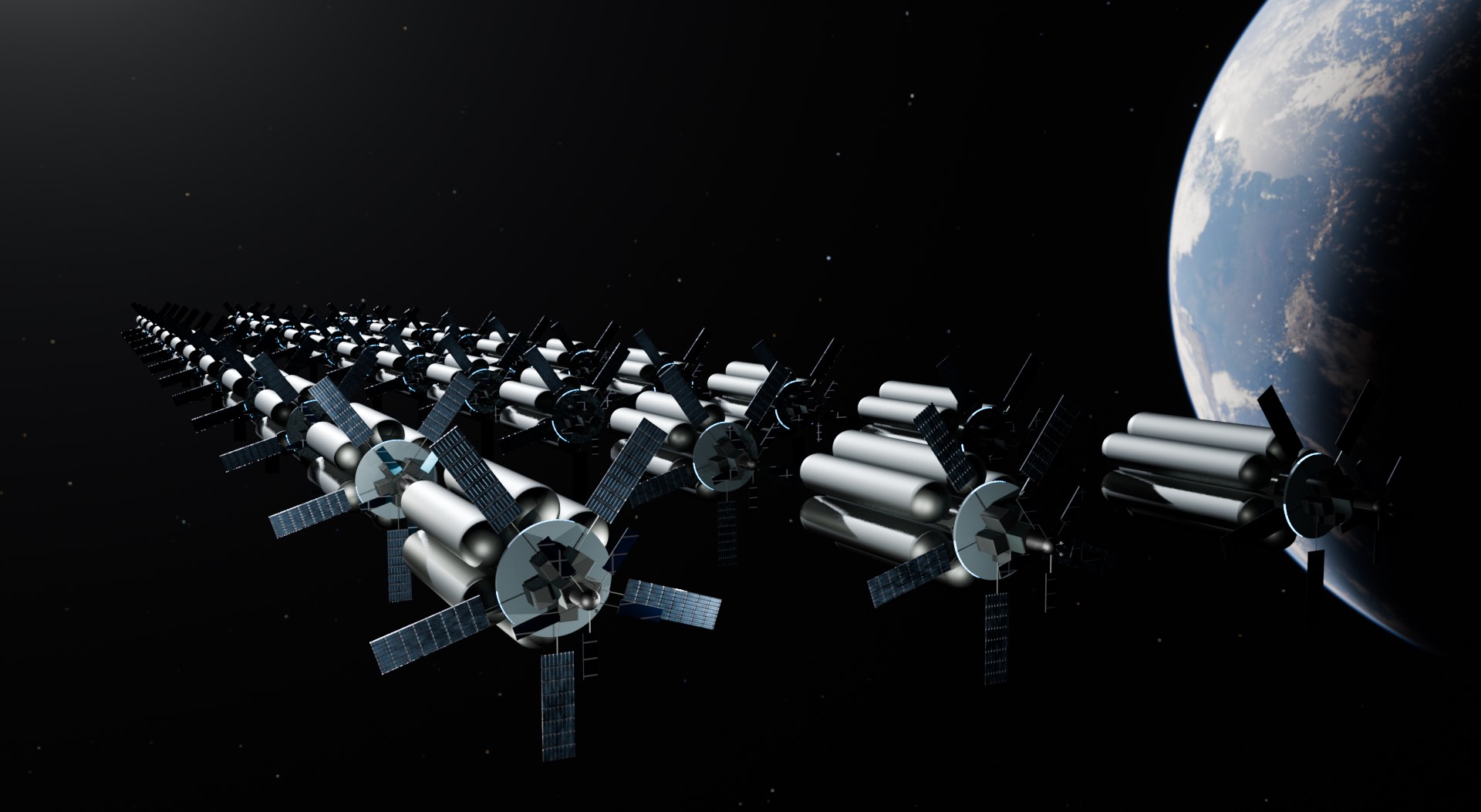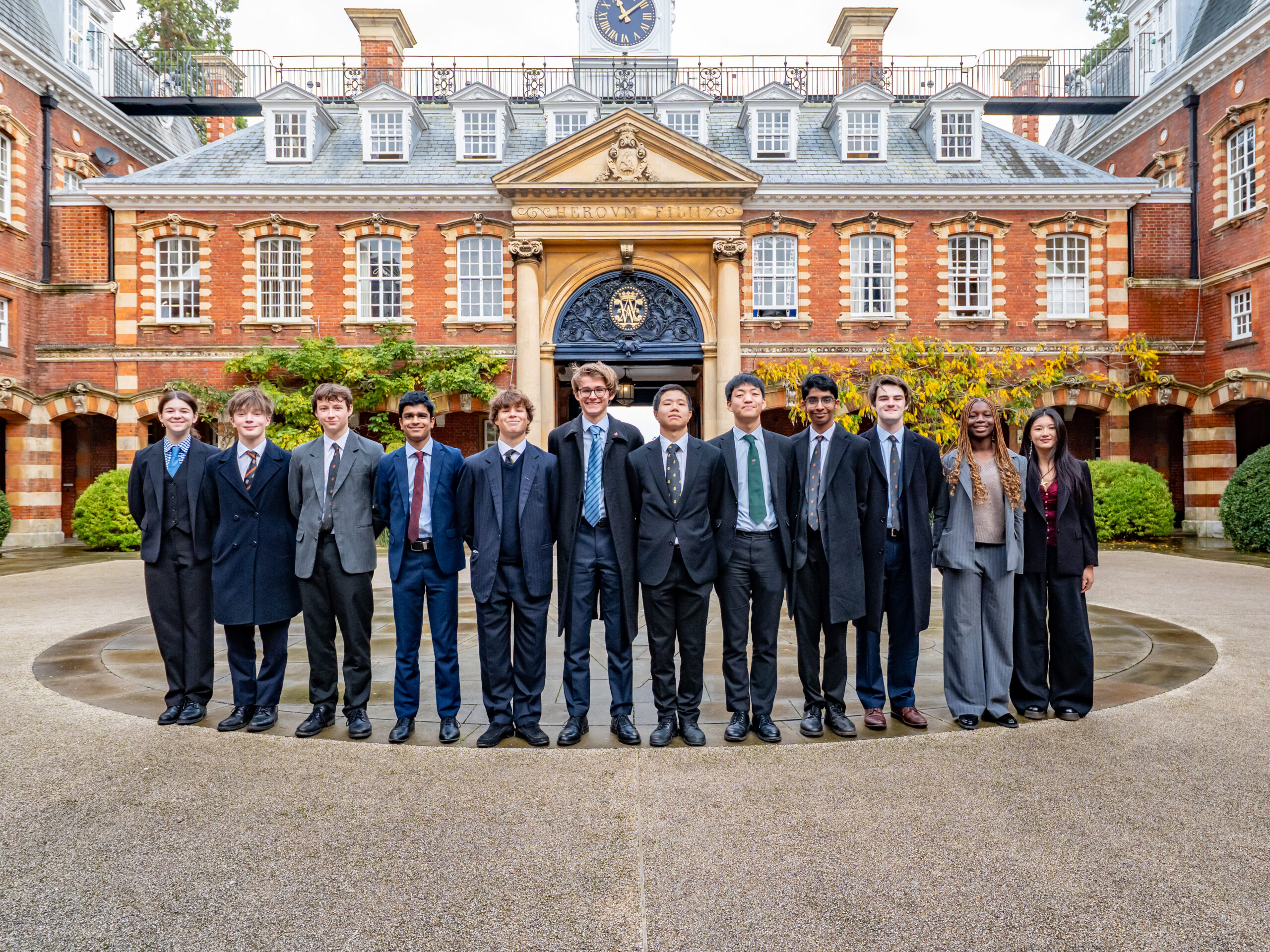A team of outstanding Wellington College pupils has won the Regional Round of the UK Space Design Competition (UKSDC), securing their place at the National Final at Imperial College London. This achievement places them among the most innovative young scientists, engineers and problem-solvers in the UK.
The UKSDC is a unique and immersive challenge open to students in Years 10–13, designed to replicate the pressures, collaboration and problem-solving of real industry. As part of the competition structure, the Wellington pupils formed a joint company with students from Wychwood School, working seamlessly as one integrated team. Together, they were tasked with designing a fully operational space settlement or spacecraft, responding to stringent technical requirements while presenting a compelling, feasible solution to judges from academia, engineering, business and the wider space sector.
In their impressive presentation, the team unveiled “Wayfarer”, a sophisticated deep-space cargo vessel concept designed to transport up to 1,000 modular freight units across the inner Solar System. Their proposal demonstrated exceptional depth of reasoning and a level of integration rarely seen at regional level.
Their design featured a pentagonal central spine supporting seven immense liquid-hydrogen fuel cylinders, a radiation-resistant framework and a carefully engineered habitation disc to support the 15-strong crew responsible for operations. Using structural modelling and simulated load analyses, the pupils proved that their vessel could withstand the stresses of long-duration interplanetary travel.
The team’s operational planning was equally impressive. They developed a complete turnaround model for spaceport interaction, incorporating electromagnetic lifting systems, tug-assisted cargo movement, automated frame-handling and a detailed seven-day scheduling window for refuelling, waste processing, supply loading and crew transfer. Their understanding of logistics, safety procedures and subcontracted support added a professional level of realism.
Propulsion and power were also expertly addressed. Wayfarer’s four nuclear thermal engines provide a maximum delta-v of 15 km/s, while a vast radiator array handles heat from the reactors. A solar-powered emergency system capable of sustaining crew life functions further strengthened the design’s credibility.
The pupils also impressed the judges with their attention to human factors. Their habitation area included medical facilities, exercise spaces, food and resource management systems, mental-health considerations, and a fully mapped crew workflow. Their plan even included emergency response strategies, quarantine protocols and long-term maintenance scheduling.
To complete their proposal, the team developed a full financial and commercial model. This included projected running costs, fleet development to 2050, ship retirement cycles and a formula for pricing transport contracts based on payload mass, delta-v and mission duration.
The judges praised the Wellington team for their clarity, ambition and the sheer depth of their thinking. Their ability to integrate engineering, human wellbeing, operations and commercial planning into a coherent and compelling proposal was key to their success.
Winning the regional round means the team now progresses to the UKSDC National Final, a residential weekend at Imperial College London. There, they will join top teams from across the country to design an even more complex space settlement as part of a large, multi-team “company.” Outstanding performers may ultimately be invited to the International Space Settlement Design Competition (ISSDC) at NASA’s Kennedy Space Center.
This remarkable achievement highlights the creativity, collaboration and intellectual curiosity of our pupils, and we are incredibly proud of their success. We look forward to supporting them as they take on the next stage of this extraordinary challenge.






